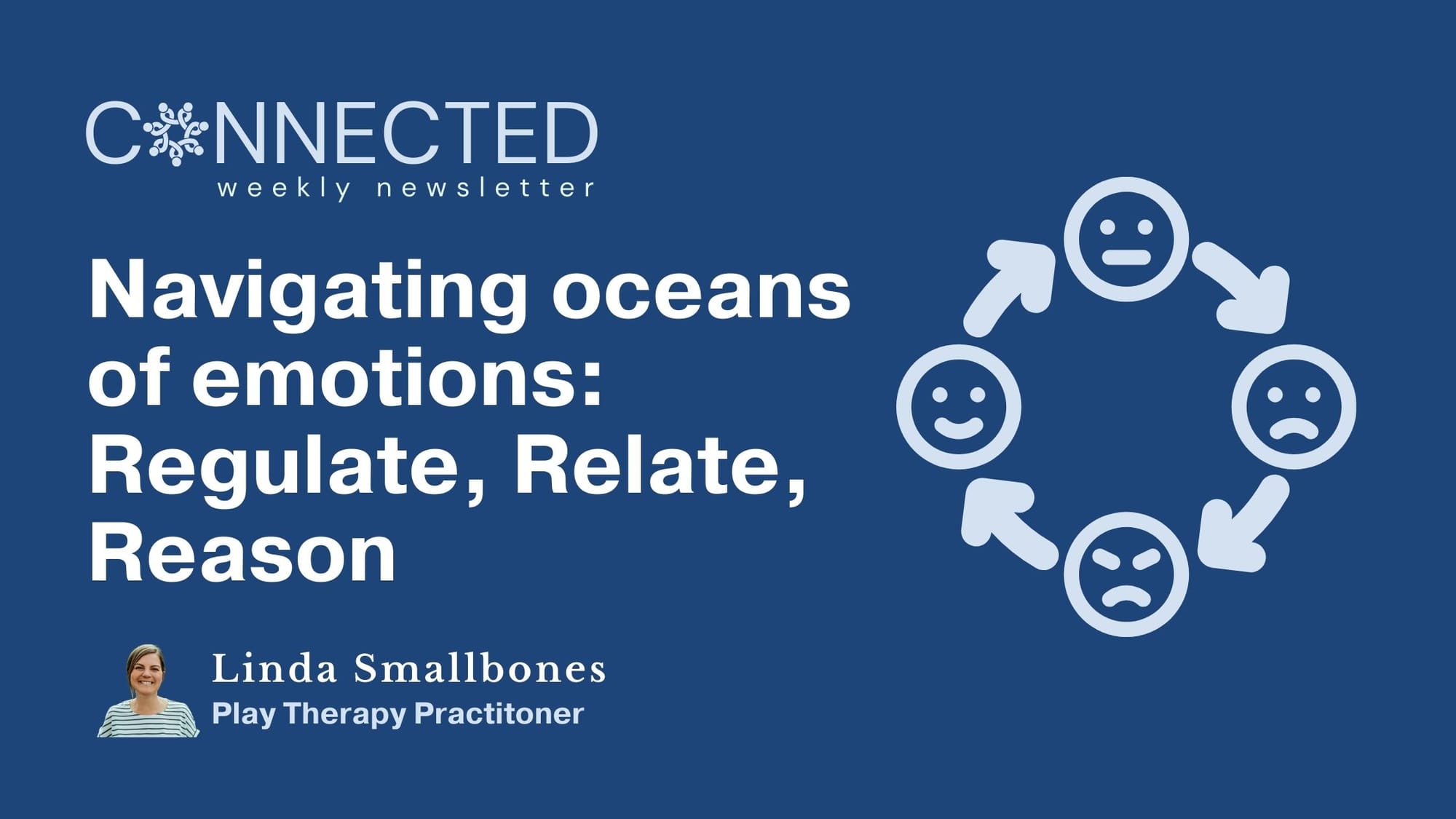Navigating oceans of emotions: Regulate, Relate, Reason
Learn how the Regulate, Relate, Reason approach helps children manage emotions, fostering resilience, connection, and emotional growth.

When our emotions are recognised, listened to and responded to with care, we are better able to regulate and then learn how to cope with our emotions. Dr. Bruce Perry writes about a sequence of engagement that is very helpful: Regulate, relate, reason.
[Image Placeholder: navigating-oceans-of-emotions-2.jpg]
One day a child arrived home from school, went into his room and threw his books out of his school bag and threw a few other things around the room for good measure. He slammed the door and growled at anyone who came near. Behaviour seemingly out of the blue.
Let’s just pause and think about this… There are a few ways to respond as a parent.
An authoritarian parent looks at the behaviour only, deems it disrespectful and unacceptable, and decides to punish the child for throwing books around. There is probably no reflection on what caused the behaviour. Tensions may escalate, things that are not meant are said, voices are raised, it gets out of hand and both parent and child are left feeling angry, disconnected, and even shameful.
A helicopter parent might rush into the room and start tidying up immediately. They will want to smooth over, make better and fix, fix, fix. This parent might be appearing to be more gentle than the first, but there is also no reflection on the cause of behaviour and only a desire to smooth everything over and “back to normal.” There doesn't appear to be space for emotions at all.
An emotionally-aware and in-tune parent will wait. They will also think about context; at this time of the term kids are writing tests, finishing projects or doing orals and it’s heading toward the end of the term when children, teachers and parents tend to be less fresh. Additionally, to what is going on at school, there might be stuff happening at home.
In our story, an emotionally aware and in-tune dad is in the parenting seat.
The dad takes a deep breath and orientates himself towards his child. He knows that space and timing are important to allow himself to respond with patience and to assess when his son is ready to engage. Acceptance of the child and his emotions is communicated. “I can see you’re really upset about something today. I am here when you want to talk.”
This child will learn they are accepted in the moment along with their emotions.
The boy starts calming down, having a cry about the frustrations he carried home with him in his school bag, the anxiety he felt about being behind in his work. His dad listens and empathises. The child becomes regulated, i.e., he becomes calm and in control of his emotions and body. He moves from overwhelm and stress to calm. He starts to be able to communicate a bit more with his dad, and be honest about his emotions. It becomes clear that he was worried and overwhelmed and that erupted as anger.
[Image Placeholder: navigating-oceans-of-emotions-3.jpg]
Then – only when the child was in a calm state – did the dad start suggesting a plan for a way forward. He suggested the child have a snack, that he take a refreshing shower and then they would sit and talk about the work together.
The child, being regulated, was able to reconnect in relationship with his dad, followed through the suggested plan on his own. When he had finished his snack and his shower, he sought his dad out and asked for help with the work. He was regulated, felt connected to his parent and then was able to reason – to do the cognitive work required of him.
Later, after the work had been done, the parent asked to tidy up in the bedroom, which was done.
Overall, the time in high emotion and “drama” was relatively short-lived due to the calm, patient response of the parent. The real issue for the child was exposed – worry and overwhelm.
The story ends with a child going to bed having successfully tackled some of the work, with support. He is more resilient to continue working towards catching up his work the next day. He has had an affirming experience with his dad who helped him navigate a stressful situation by being patient with him and showing unconditional acceptance.
[Image Placeholder: navigating-oceans-of-emotions-4.jpg]
Here’s the hard part: This cycle in some form or another will repeat itself, life is demanding after all and the same challenges trip us all up more than once! This is a learning experience for your child (and you) as they learn to regulate, relate and reason through your ongoing support.
As parents how we help regulate, relate and reason is through practice, practice and more practice. This is why self-care for parents is so crucial! We never stop needing the regulate, relate and reason cycle for ourselves either.
Any disciplinary action that is needed can come after dealing with the emotions. Once a child feels validated in their emotions, they are usually able to recognise what they need to do to repair the situation and do it without being told. But sometimes they do need a bit of prompting and support as well.
The snack was not comfort food, but it was genuinely needed by the child at this point in the day. Low blood sugar levels contribute to ‘hanger’ and dysregulation. It is important to check when your child last ate or drank water, to ensure they’re not experiencing a sugar low that can cause emotional dysregulation.